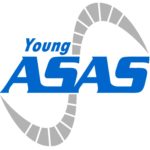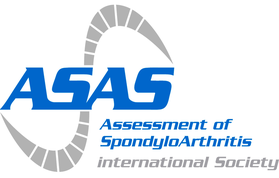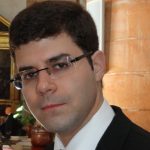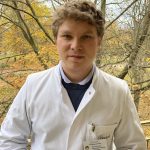
The Young ASAS (Y-ASAS) initiative was established by the ASAS Executive Committee (EC) in 2017. ASAS members 45 years old or younger can become Y-ASAS members. The goals of Young ASAS are:
- to bring younger ASAS members closer to ASAS procedures;
- to give young ASAS members the possibility to get to know the EC and possibly get elected in future;
- to boost the networking between young ASAS members;
- to motivate young ASAS members to start new ASAS projects.
Young ASAS participates in the following activities:
- Y-ASAS members will have to be included and actively participate in the organization of ASAS projects (two Y-ASAS members per project)
- Two Y-ASAS members are present in the EC (non-voting members) and participate in EC meetings; the rotation of Y-ASAS representatives in the EC is ensured every two years.
Young ASAS Subgroups
The general scope of the Y-ASAS research team is to promote and facilitate research and knowledge exchange amongst the Y-ASAS community and to facilitate the involvement of Y-ASAS members in ASAS research activities.
The overarching aims are:
- To build a framework on which Y-ASAS members find support in proposing, developing and implementing new Y-ASAS projects.
- To promote collaborations across Y-ASAS members and knowledge exchange within the Y-ASAS community.
- To promote and expedite the involvement of Y-ASAS members in upcoming ASAS projects.
- To facilitate research exchange between Y-ASAS members and experienced ASAS members.
Main Projects
- Young ASAS research projects: PIs of existing databases are invited to allow Young ASAS members to apply to conduct ancillary analysis. All data (existing and new) collected in ASAS-endorsed projects is available. Call for submitting ideas is permanently open.
- Two Young ASAS members collaborating in all new ASAS projects: in order to give learning experience to Young ASAS members who may later develop their own projects. Young ASAS research team manages application and selection process (competitive call at the beginning of each new ASAS project).
- Young ASAS collaborative research projects: to allow Young ASAS members to propose research projects which benefit from wide collaborations but have little to no costs involved. Furthermore, to create and strength a network between Young ASAS members by sharing knowledge and ideas to further enhance the quality and improve the performance of research projects in the field of SpA. Call for submitting ideas is permanently open.
The Young ASAS research team can be reached by e-mail: yasasresearch@gmail.com
The general scope of the Newsletter Team is to disseminate valuable information from the ASAS Executive Committee, Young ASAS, ASAS initiatives and ASAS projects, international congresses (EULAR, ACR), annual meetings and SpA top-ranked publications within the ASAS community
The team publishes 3 newsletters per year:
- Following the ASAS meeting in Jan/Feb;
- following EULAR in June/July,
- following ACR in November
The general scope of the Website Team is to provide better visibility for ASAS and better functionality of the Website by offering help with expanding and regularly updating the ASAS website.
The Website team:
- maintains the ASAS website and keeps the content up-to-date
- creates and schedules the mass-mailing for all ASAS Members
- improves the functionality of the Website, introducing new features
The general scope of the Education Team is to provide and facilitate academic knowledge focused on the field of spondyloarthritis among the Young ASAS community as well as young researchers/clinicians in close collaboration with ASAS.
Overarching Aims
- To build a framework on which Young ASAS members and young researchers/clinicians find support in improving their skills and knowledge in the field of spondyloarthritis.
- To provide guidance through several activities for the purpose of deepen their knowledge in spondyloarthritis and good quality research.
- To improve the quality of research performed among the spondyloarthritis studies.
- To inspire Young ASAS members in their involvement in upcoming ASAS projects.
- To facilitate research exchange between Young ASAS members and experienced ASAS members.
Main Projects
- Young ASAS Congress Grant: Promoting participation in EULAR/ACR congress for Young ASAS members
- Young ASAS Educational Presentation: Learning concepts directly related to spondyloarthritis.
- Young ASAS virtual sessions: Developing of skills related to the research field, such as methodology, statistics, data presentation, data management.
- Young ASAS communications of results from ASAS projects: Learning about the results and insides of ASAS projects.
The general scope of the Social Media Team is to promote ASAS educational content and ASAS updates on three social media platforms (Twitter, Facebook, LinkedIn)
Current activities:
- Leverage ASAS Slide Library and ASAS Case Library material to provide education on spondyloarthritis
- Communicate official ASAS project publications and abstract presentations at annual congresses and meetings
The general scope of the Networking Sungroup is to facilitate networking between Young ASAS members and to provide the opportunity for Young ASAS members to share information and updates on ongoing projects, as well as to discuss ideas and developments. Moreover, team tasks include organizing the networking events, taking the minutes and the attendance list of the Young ASAS Business Meetings, and updating the Young ASAS Members List.
Young ASAS Leaders
2023-2025
Alexandre Sepriano is a rheumatologist at the rheumatology department of the Hospital Egas Moniz, Lisbon, Portugal. He has completed his PhD at the Leiden University Medical Center in 2020. His research focuses on early recognition, treatment and outcomes of spondyloarthritis.
Alexandre has been an ASAS member since 2016 and a full member since 2019.
Mikhail Protopopov is a rheumatologist and a researcher in the Medical Clinic for Gastroenterology, Infectious Diseases and Rheumatology, Charité – Universitätsmedizin Berlin, Germany. He has completed his PhD at the Kazan State Medical University in 2014. His research focuses on the prediction of radiographic progression, early recognition, outcomes and imaging in spondyloarthritis.
Mikhail has been an ASAS member since 2017.
Former Young ASAS Leaders
2021-2023
2019-2021
2017-2019



